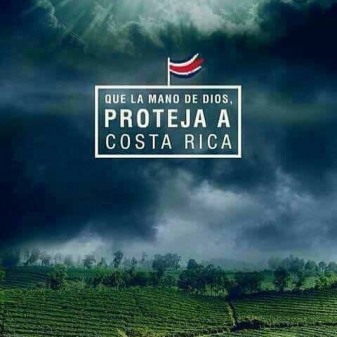The first place finish of National Restoration Party candidate Fabricio Alvarado in the opening round of the 2018 elections in Costa Rica sent shock waves through Latin America’s oldest democracy.

Alvarado, a journalist, singer and Evangelical preacher, rose from 3 percent in the polls in January to gain nearly a quarter of the votes in the first round of the elections on February 4, primarily as a result of his opposition to the Inter-American Court of Human Rights’ decision in January ordering Costa Rica to recognize same-sex marriage. Alvarado has threatened to pull Costa Rica out of the Inter-American Court, arguing that the decision is a violation of Costa Rica’s sovereignty. He will face Carlos Alvarado, a center-left candidate from the ruling Citizens’ Action Party, in a runoff election on April 1st.
While Fabricio Alvarado has been outspoken in his positions on same-sex marriage, abortion and sex education in public schools, his plans on climate change remain unclear. The environmental proposals addressed in his 56-page Government Plan lack specificity and an understanding of current climate governance structures, standing in stark contrast to Carlos Alvarado’s Plan.

Fabricio Alvarado is clearly ahead of his rival, leading by nearly 15 percentage points in a recent El Mundo poll. Following February’s elections, the National Restoration Party now controls 14 of the 57 seats in Costa Rica’s Legislative Assembly, second only to the center-right National Liberation Party’s 17 seats. Fabricio Alvarado was previously the party’s lone congressman.
A victory by the National Restoration Party in the presidential runoff will likely trigger significant changes in governance from the current administration of Luis Guillermo Solís. While topics of religion, gender and human rights have dominated the political discourse in recent weeks, there could also be a significant departure from the current administration’s climate governance policies.
Costa Rica has long been regarded as a leader in climate governance and has adopted bold and innovative environmental policies under the current administration. With Solís at the helm, Costa Rica signed the Paris Agreement and set forth its Intended Nationally Determined Contribution (NDC), which establishes ambitious targets for a developing nation, reaffirming its goal of carbon neutrality and pledging to become a country of zero net emissions by 2085. Solís also extended Costa Rica’s ban on petroleum exploration and extraction through 2021. And this past January, Solís signed into law an electric transportation bill that incentivizes the use of all-electric vehicles.
Fabricio Alvarado devotes an entire section of his Government Plan to Sustainable Environmental Restoration and highlights the importance of addressing the issue of global warming. In his Government Plan, Alvarado states:
“The world is currently on the precipice of environmental catastrophe if the governments of the world do not take urgent measures to stop global warming, pollution and the destruction of our ecosystems. The Christian stewardship that lies at the basis of our ideology, understood as the obligation that we have to care for and preserve God’s creation, is expressed in our concern for the environment and sustainable development.”
Alvarado goes on to outline a series of sustainable action proposals, calling for the continuation of electricity produced through clean sources and ensuring that sustainability is incorporated in all orders for national development policies. In addition, he calls for a new mining code to help pay off the country’s debt while leaving a green footprint and a new forest management policy that looks to improve the sustainable market options for Costa Rican wood.
Although Fabricio Alvarado seems to have some grasp of the urgency of environmental issues we face, he fails to make specific reference to climate adaptation and mitigation in his government plan, nor does he mention to Costa Rica’s NDC. While the idea of Sustainable Environmental Restoration may be appealing, he fails to link his policies to the Paris Agreement or other international documents.
Many of the policy proposals outlined in his government plan lack specificity and a timetable for action. For example, Alvarado calls for the stiffening of penalties for public or private actions that undermine the country’s environmental sustainability. It is unclear what actions Alvarado would consider to be detrimental to the country, how severe these penalties would be and how they would be implemented.
This stands in stark contrast to Carlos Alvarado’s Government Plan, which builds upon the work of the Solís administration and offers comprehensive proposals for climate governance. His Plan is based on two principal goals:
- Advance the decarbonization of the economy through actions to reduce emissions.
- Implement effective mitigation, adaptation and risk management policies to be a nation resilient to climate change.
Most importantly, Carlos Alvarado’s proposals directly address the need to fulfill the goals set forth in the Paris Agreement. Alvarado plans to uphold Costa Rica’s promise of becoming a carbon neutral country by 2021 and honor the goals of Costa Rica’s NDC. Alvarado hopes to make Costa Rica a global model for decarbonization.
A Carlos Alvarado administration would likely maintain Costa Rica’s place as a global leader in climate governance, but a Fabricio Alvarado-led government would largely be a step into the unknown. While other issues have dominated the news cycle, Solís’ impressive climate legacy may be at stake when Costa Rican voters go to the polls on April 1.

